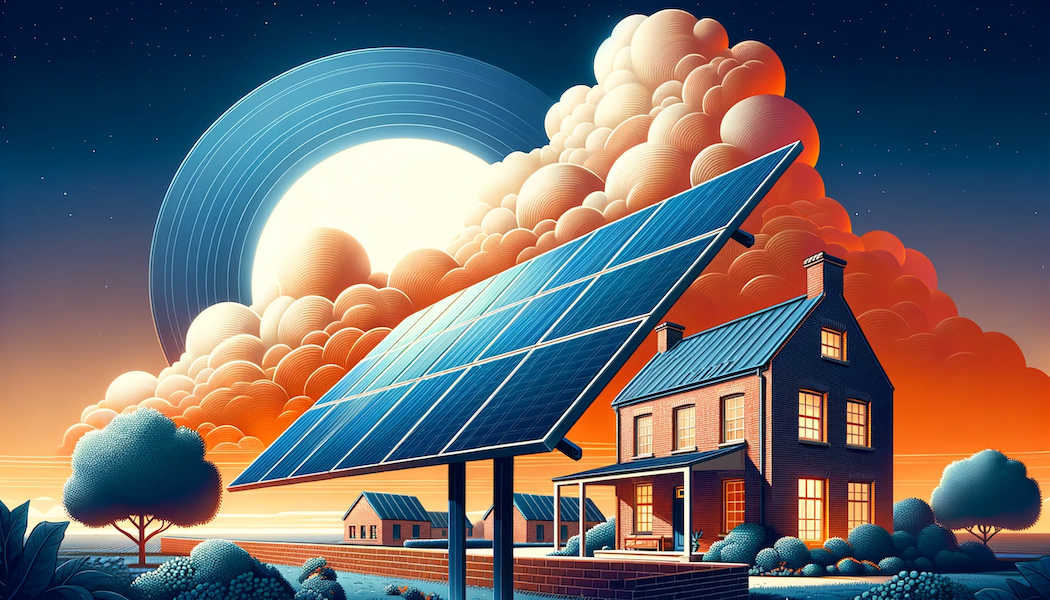

Unlocking the Power: Enhancing Efficiency with Solar Panels for Homes
As the pursuit of sustainable living gains momentum, the efficiency of home energy systems becomes paramount. Solar panels emerge as a pivotal technology, offering a pathway to maximize efficiency and minimize environmental impact. Let’s explore how integrating solar panels into your home can transform it into an energy-efficient powerhouse.
Harnessing the Sun’s Energy for Efficiency
At the core of solar panel efficiency lies the ability to harness the sun’s abundant energy. Solar panels convert sunlight into electricity, providing a clean and renewable energy source. This harnessing of solar power minimizes reliance on traditional, often less efficient, energy grids, contributing to a more sustainable and self-sufficient home.
The Role of Photovoltaic Cells in Efficiency
Photovoltaic (PV) cells, the building blocks of solar panels, play a central role in optimizing efficiency. These cells directly convert sunlight into electricity, and advancements in PV technology continue to enhance their efficiency. Improved materials and engineering techniques are making modern solar panels more adept at capturing sunlight and transforming it into usable energy.
Inverter Technology for Maximum Output
Efficiency is further bolstered by inverter technology, a critical component of solar panel systems. Inverters convert the direct current (DC) electricity generated by solar panels into alternating current (AC) electricity used in homes. Upgrades in inverter technology contribute to minimizing energy loss during this conversion process, ensuring maximum output and efficiency.
Optimizing Solar Panel Placement for Efficiency
Strategic placement of solar panels is key to optimizing their efficiency. Proper orientation and tilt angles, depending on geographical location, ensure panels receive maximum sunlight exposure throughout the day. This thoughtful positioning maximizes energy production, making the most of available sunlight and increasing the overall efficiency of the solar panel system.
Tracking Systems for Peak Performance
Innovative solar panel systems often incorporate tracking technology to follow the sun’s path across the sky. These tracking systems adjust the angle and orientation of solar panels dynamically, ensuring they remain directly facing the sun for optimal energy absorption. While adding a layer of complexity, these systems significantly enhance efficiency.
Storage Solutions for Continuous Efficiency
Efficiency isn’t only about energy production; it’s also about effective utilization. Solar panel systems can integrate energy storage solutions, such as batteries, to store excess energy for later use. This ensures a continuous and efficient power supply, especially during periods of low sunlight or power outages, making the system more resilient and dependable.
Smart Home Integration for Energy Efficiency
The synergy between solar panels and smart home technology amplifies efficiency. Smart home systems can be programmed to optimize energy usage based on solar production levels. This integration allows homeowners to align their energy-consuming activities with peak solar output, further maximizing the efficiency of their solar panel system.
Environmental Impact: Efficiency and Sustainability
Efficiency in solar panels extends beyond individual benefits to environmental impact. By generating clean energy efficiently, solar panels contribute to a reduction in greenhouse gas emissions and environmental degradation. This dual focus on personal efficiency and global sustainability reinforces the appeal of solar panel adoption.
Investing in a Solar Panel Home for Efficiency
To explore how solar panels can enhance the efficiency of your home, visit Solar Panel Home Efficiency. Investing in solar technology is not just a commitment to efficiency but a step towards a sustainable and energy-resilient future.








.jpg)